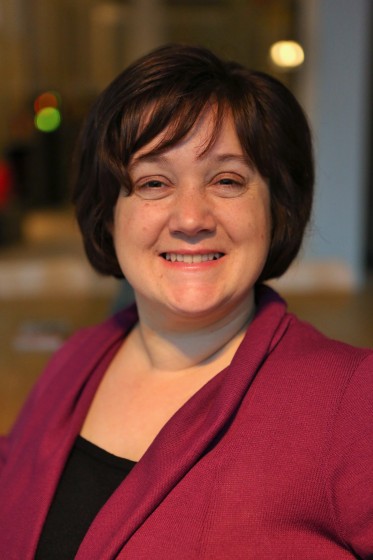‘I miss rolling hills and rock formations’

 We put 10 questions to Lucie Cunningham, a French national who lives in Delft and describes herself as a ‘social activist’.
We put 10 questions to Lucie Cunningham, a French national who lives in Delft and describes herself as a ‘social activist’.
How did you end up in the Netherlands?
My husband accepted a position as a then assistant professor at TBM at TU Delft eleven years ago. We moved from Silicon Valley in California. We lived in Atlanta, GA and Brighton, England prior to this.
How do you describe yourself – an expat, lovepat, immigrant, international etc – and why?
I started out being an expat, coming here for my husband’s two year contract to see how we liked it here. After 11 years of enjoying living in Delft, I believe that I have graduated to a well-integrated ‘international’ status.
How long do you plan to stay?
It all depends on our career prospects and our ten year old son’s well-being and education. We are open to staying for a very long time. I was a candidate for GroenLinks Delft (green party) for the local elections on March 19th when city councillors and commission members will be nominated for four years. I am part of their social policy team.
Do you speak Dutch and how did you learn?
I do speak, read and write Dutch. I first took a beginner’s course at TU Delft which helped me memorise standard phrases useful for daily conversations. I later took a three week summer course where I received some basic grammar knowledge. Three years ago, I signed up for a comprehensive advanced course that prepared me for a national exam of Dutch as a second language (NT2) called ‘staatsexamen’ that is of university entrance level. This was a very helpful tool for my career as advisor to the Gemeente Delft’s Expat project team and for helping my son with his homework as he goes to a Dutch primary school.
What’s your favourite Dutch food?
My lovely neighbour Marijk makes an excellent erwtensoep, a thick pea soup with various cuts of pork meat and chopped vegetables. I like very dark brown bread rolls and enjoyed Applefleurtjes when they were available at a café’ in Delft a few years ago: it is a light apple tart without raisins with a thin glaze of apricot glazing. I discovered Surinamese food here and enjoy rotis and baras.
What do you miss about back home?
Apart from family and friends, I miss the rolling hills and big rock formations that are typical of my hometown. Food is very fresh there and supermarkets are stocked differently. I have adjusted to shopping here and know some very fine small stores in Delft where I enjoy shopping and trying out new foods. I miss French music but thankfully I can listen to some on line.
How Dutch have you become?
Dutch enough to bike through town, except when the streets are frozen or there is a heavy storm and I have the option of catching a tram or a bus. I have learnt about the various primary school systems available in town and am orienting myself about middle schools now. I volunteered at school to help young children learn how to read Dutch and I am currently overseeing my son’s school library where I discovered some really nice Dutch classic youth literature. I follow Delft news very closely in the local media and social media.
What’s your top tourist tip?
Don’t forget to walk around the neighbourhood around Agneta Park, close to the DSM plant. There is surprising architecture in Delft with an interesting history. I would also recommend the city tour of Het Gilde Delft about remarkable women in Delft history.
Tell us something surprising you’ve found out about NL
What a successful country economically speaking! The Netherlands is the 17th largest economy of the world. It belongs to the top 10 of richest nations in the world and is presently the world’s fifth largest natural gas exporter.
If you had just 24 hours left in NL, what would you do?
I would stop one last time at the Delft public library DOK. I would walk around the historical centre of Delft and I would bike around the Delftse Hout and Tanthof green areas. I would then say goodbye to my nice Dutch friends and take pictures of our house in the Westerkwartier to preserve the memories of my son’s childhood.
Thank you for donating to DutchNews.nl.
We could not provide the Dutch News service, and keep it free of charge, without the generous support of our readers. Your donations allow us to report on issues you tell us matter, and provide you with a summary of the most important Dutch news each day.
Make a donation